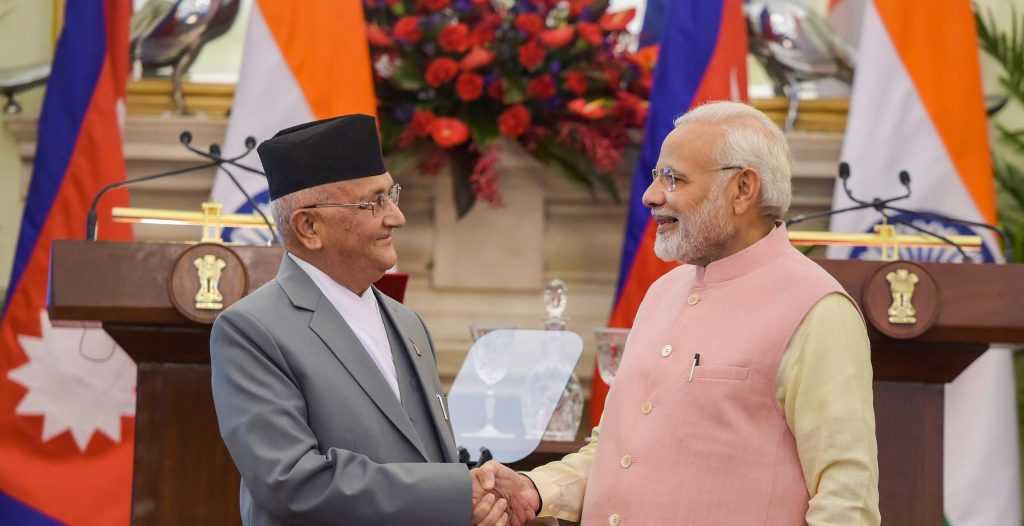India and Nepal share a deep bond and a long history. This association has been renewed at every possible point in both the nation’s modern history. India and Nepal do not share just borders but cultures and resources as well. Indian communities have traded and lived in Nepal while Nepalese continue to live and flourish on Indian soil. The Gorkha regiment in India is a source of pride for the Indian armed forces. Nepal being a landlocked country has been dependent on India for articles of daily need while Indian companies have continued to invest and boost the infrastructure in the Himalayan country. Prime Minister Narendra Modi realized the importance of maintaining the good relations India has shared with its close neighbor. It initially became difficult owing to the strong leftist government led by Prime Minister Oli in Nepal but the situation has immensely improved since. The two-day visit of PM Modi starting today is a huge step in deepening ties with the Himalayan country. This is PM Modi’s third visit in less than three years to Nepal highlights the importance of the ties between the two nations. PM Modi has announced the start of direct bus service from Ayodhya to Janakpur in Nepal. The direct bus service will be a big boost to Indo-Nepal ties and will increase trade between the two countries.
PM Modi’s two day state visit will begin with a guard of honour by the Nepali Army, followed by public receptions in both Janakpur and Kathmandu. PM Modi will also meet with President Bidya Devi Bhandari, Vice-president Nanda Bahadur Pun, and hold bilateral talks with his Nepalese counterpart, Prime Minister Oli during this two day visit. PM Modi and PM KP Oli are also scheduled to jointly inaugurate the Arun-III, a 900 MW hydroelectric power project based next to the Arun river. The chief highlight of this two day trip for Indians and Nepalis is the announcement of a bus service between Ayodhya and Janakpur. Since Ayodhya is the birthplace of Sri Ram while Janakpur is the birthplace of Maa Sita, opening up direct bus services between the two places means a boost to religious tourism.
Apart from the obvious tourism and trade benefits, the bus route will also increase opportunities for Nepalis who are willing to work in India. This will be another setback to China which has been looking to start several infrastructure projects in Nepal. Nepal PM Oli’s soft approach to China had been the reason for the earlier standoff between India and Nepal. Arun-III project and direct bus service between Ayodhya and Janakpur will pave the way for closer ties in the future for India and Nepal. A large number of the BJP voters back home vote for the party because it is perceived as an outfit which seeks to preserve and assert India’s cultural identity. The bus service between the birthplaces of Sri Ram and Maa Sita are likely to go down well with them as well.
PM Modi is also scheduled to visit the Muktinath Temple on May 12. Muktinath Temple is one of the most revered sites for the Sri Vaishanava sect which has a large following in Karnataka. Arun III project and the Ayodhya-Janakpur bus service will further boost the morale of the Indian people, as a large part of the power produced by the Arun III project will be purchased back by India for use in Indian villages and towns.
Nepal is wedged between India and China, and serves as an important buffer state between the two arch-rivals. It is of utmost diplomatic and strategic importance for India to make sure that Nepal does not allow more Chinese encroachment southwards towards India.
